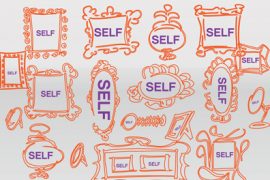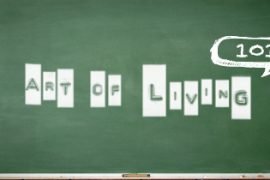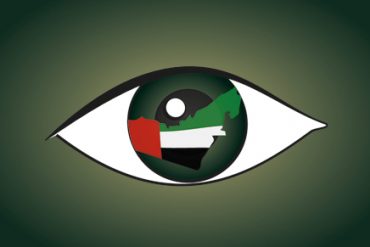Mohanna Tayeb is on the cusp of making promising changes within the upcoming artistic scene in Saudi Arabia.

Mohanna Tayeb believes that his portraits need to be displayed outdoors, and not remain within the constraints of closed spaces. In his opinion, they are “just like us humans”. It’s quite apparent in his art, within the portraits of icons such as the late Salvador Dali and Mahmoud Darwish. However, these pieces are far from your traditional portraits. Tayeb’s interpretation veers away from the ordinary, with the use of self-taught surrealist techniques. Though they are abstract, within each portrait lies a lifelike pulse that more or less gives viewers food for thought, which is the artist’s’ intention.
The 28-year-old artist, based in Jeddah, never presumed earlier in life that he’d be able to make a career that lay with art, writing, and poetry. With a bachelor’s degree in media, Tayeb first got a start on television and radio, but ultimately quit to focus more on strengthening his niche.
Tayeb recounts starting to paint as a means of self-exploration, which is also a recurrent theme in all of his works, including his books and poems. Another theme his work revolves around is the contrast between the conscious and unconscious, with each character emphasized by his signature repetitive circular technique. His debut solo exhibition was held in 2009 when his art was previously traditional; a far cry from his recent surrealist body of work.
Tayeb claims that in his local community, the reaction towards his art was at first mixed, but over the years he’s gained more praise. “Only people who are comfortable with their ugliness, however inwards or outwards, will understand my portraits,” he says. “Whoever’s not, in effect, tends to deny their meaning.” Indeed, one of his core aesthetics is to “present the beauty of ugliness”. He developed this at the start of his career; initially displaying darker canvases with the strict use of black and white colors for seven years.
It was only when he realized that his daughter reacts positively to bright colors that he began to experiment and explore a different palette. Thus his recent portraits underwent a slight change in aesthetic, such as “Returning from Paradise”, which was inspired by verses from Dante Alighieri’s Paradiso.
To add another selection to his never-ending roster, Tayeb also founded “The First Movement” in late 2017, which is a group of eleven Saudi Arabian artists with different artistic references from expressionism to pop art. In an interview with Khulood Ahmed of Vogue Arabia, Tayeb says: “The first movement is the first ideas or feelings that occur to the mind of the artist without thinking of the opinion of the recipient, or the showroom…and in its sense came this name”
In regards to his literary works, Tayeb has so far published two books, and another two are in the works. His first novel titled “Al-Kum Kum” was published in 2014; it describes the story of “Asghar”, and his journey of finding his father. What is exceedingly fascinating is that in this novel, the author commits to his ideal that even when circumstances are dreadful, there still is glory to be found. The protagonist’s physical and emotional imperfections do not prevent him from finding virtue in himself and in others he meets on his journey. Themes such as self-discovery, abandonment, and fear are also present in the book. Tayeb claims that writing a book was an entirely new endeavor, but that the idea had to be put to paper in order to fully understand the relationship between a human and a city. “Suffering is a big part of my work…it made me appreciate myself more,” he says.
For 2018, he will be expanding his artistic influence around the Gulf by heading workshops in Kuwait and Bahrain, with hopes to exhibit in Dubai as well. Creativity is certainly more than a mere talent for Mohanna Tayeb; it is a steering wheel that may drive him to become one of the region’s masterminds.



